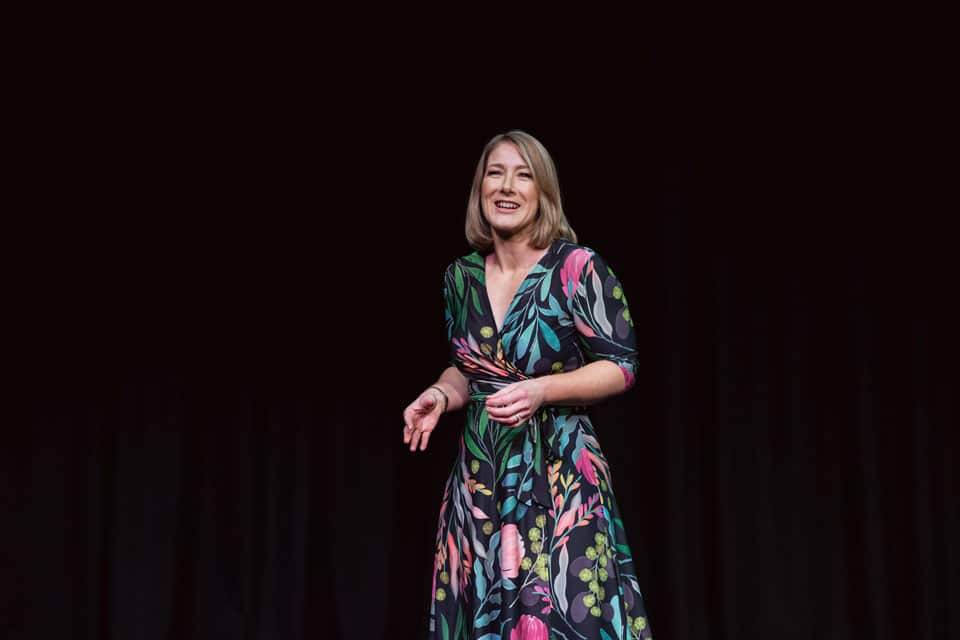How to shift from a closed to curious mindset & why it matters

In today’s fast-paced and ever-changing world, we are constantly confronted with new ideas, information and ways of working. To navigate these challenges successfully and lead our people through them, adopting a curious mindset is essential. But curiosity can be hard. When we feel threatened, uncertain or under pressure it’s easy to slip into a closed mindset as our primitive fight, flight or freeze response is triggered. Our defences go up and we can find ourselves on guard against perceived attacks, reacting based on assumptions without knowing the full picture. In this state, we resist change, struggle to listen, interject without considering others’ perspectives, and dismiss differing opinions. We see ourselves as being right and others as being wrong, are oblivious to how we are perceived, and get defensive if someone tries to give us feedback. This closed mindset limits our ability to self-reflect, hinders personal growth, and impedes effective communication and leadership.
Get curious, not furious
On the other hand, adopting a curious mindset opens the door to learning and new ideas. We become more receptive to change, have a commitment to continuous improvement, and focus on achieving the best outcomes rather than proving ourselves “right”. Curiosity transforms us into skilled communicators who ask thought-provoking questions, seek to understand other perspectives even if we disagree, and welcome diversity of opinion. We see feedback as information rather than an attack. As leaders, we explore why our team members react in certain ways, considering their emotions, feelings, fears and concerns. This deeper understanding of our people allows us to respond calmly rather than react emotionally under pressure – we get curious, not furious.
But embracing curiosity requires courage. It demands vulnerability and a willingness to question our own beliefs, change our minds, and admit that we don’t have all the answers. Importantly, curiosity does not mean giving equal weight to all opinions or entertaining perspectives that are discriminatory, dangerous, or ill-informed. Curiosity is not about surrendering to ignorance or injustice. Instead, curiosity prompts us to understand how individuals arrived at their perspectives and what informs their beliefs. It serves as the foundation of empathy – an essential ingredient in building strong connections with others.
Look inward first
Adopting a curious mindset extends beyond interactions with others; it also applies to self-reflection. To lead effectively through change, we must examine our own responses, reflect on how the change impacts us, and become aware of our thoughts, behaviours and communication. This self-curiosity improves our self-awareness, allowing us to make necessary adjustments. Afterall, we can’t change what we don’t acknowledge.
Shifting from a closed to curious mindset isn’t easy but it is possible. As Dr Norman Doige explains in his book The Brain that Changes Itself, our brains possess the remarkable ability to rewire themselves and we can adapt our responses with practice and concerted effort.
So how can we shift from a closed to curious mindset and how can we, as leaders, foster an environment that encourages it? Here are some practical tips:
- Ask more questions: Develop a habit of asking questions, both of yourself and others. Curiosity begins with a genuine desire to understand and the humility to accept that you don’t know it all.
- Engage in daily self-reflection: Set aside time each day to reflect on your reactions, interactions and behaviours. Ask yourself – What was it like to be around me today? What could I do differently next time?
- Seek to understand, not to respond: When in conversation, focus on truly understanding the other person’s perspective. Clarify their intention rather than making assumptions.
- Take a deep breath: Put a pause between your reaction and response. Curiosity requires the space for deep listening, and a breath can help slow things down to provide that space.
To foster curiosity within your team:
- Lead by example: Model the behaviour you want to see in others. Welcome feedback, encourage questions and respond positively when you receive them. Demonstrate your own willingness to learn, grow, improve and understand. This builds trust and encourages others to follow suit.
- Reframe failure: Encourage curiosity about the learnings when something goes wrong rather than blaming or shaming people for mistakes. Ask coaching questions like: What would you do differently next time? What did you learn? How could we prevent this from happening again?
- Create opportunities for people to practice: Pick a task or process your team does as part of their ‘business as usual’ and ask your team for their ideas on how it could be improved or done differently. Praise innovative thinking, even if their idea doesn’t fly.
- Support diverse opinions: Discourage criticism of others’ ideas and make it clear that diverse opinions are essential for achieving better outcomes.
Curiosity is a leadership superpower. It is one of the most important tools we have at our disposal, particularly when leading through change. By asking more questions, empathising with others, being open to different perspectives, and building self-awareness, we strengthen our relationships and the respect people have for us as leaders. Put simply, the better we know and understand our people, and ourselves, the better we can adapt and lead through the challenging times we face.
Written by Leah Mether.
Bring the best of the CEOWORLD magazine's global journalism to audiences in the United States and around the world. - Add CEOWORLD magazine to your Google News feed.
Follow CEOWORLD magazine headlines on: Google News, LinkedIn, Twitter, and Facebook.
Copyright 2025 The CEOWORLD magazine. All rights reserved. This material (and any extract from it) must not be copied, redistributed or placed on any website, without CEOWORLD magazine' prior written consent. For media queries, please contact: info@ceoworld.biz








